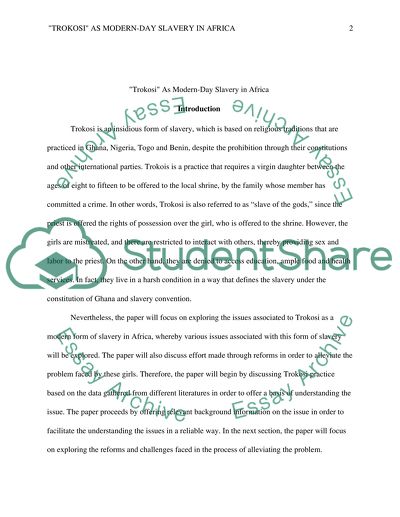Cite this document
(“Trokosi As Modern-Day Slavery in Africa Research Paper”, n.d.)
Retrieved from https://studentshare.org/religion-and-theology/1464618-trokosi-as-modern-day-slavery-in-africa
Retrieved from https://studentshare.org/religion-and-theology/1464618-trokosi-as-modern-day-slavery-in-africa
(Trokosi As Modern-Day Slavery in Africa Research Paper)
https://studentshare.org/religion-and-theology/1464618-trokosi-as-modern-day-slavery-in-africa.
https://studentshare.org/religion-and-theology/1464618-trokosi-as-modern-day-slavery-in-africa.
“Trokosi As Modern-Day Slavery in Africa Research Paper”, n.d. https://studentshare.org/religion-and-theology/1464618-trokosi-as-modern-day-slavery-in-africa.


